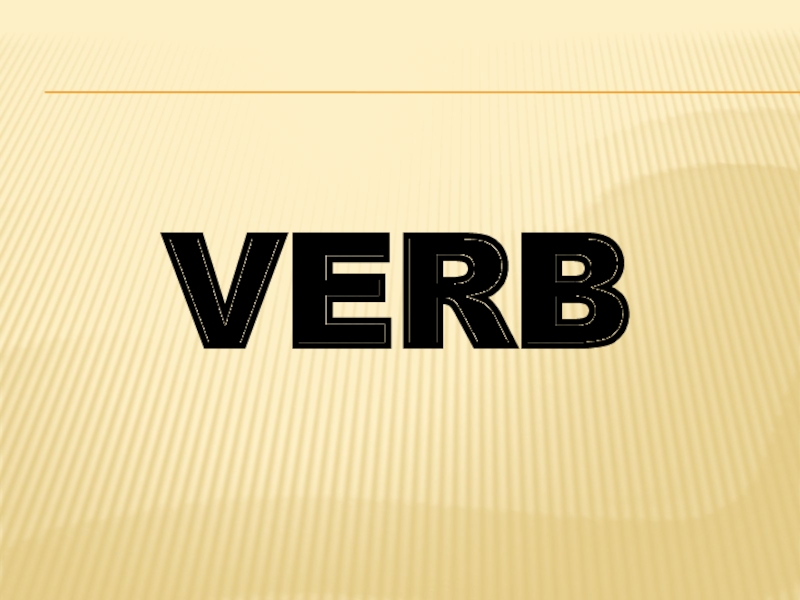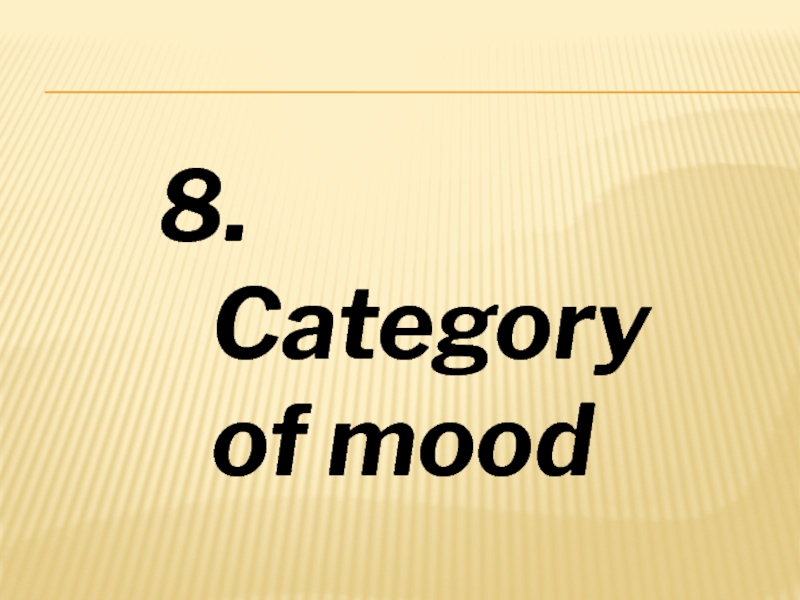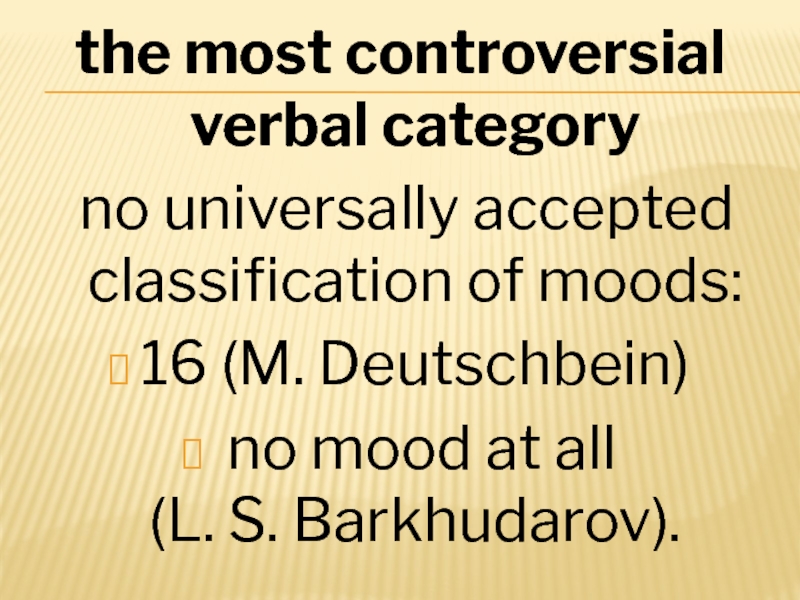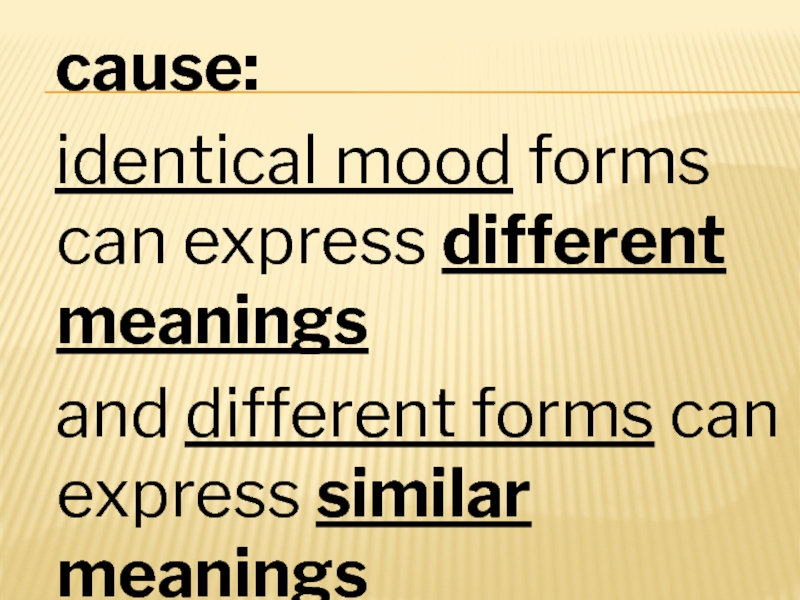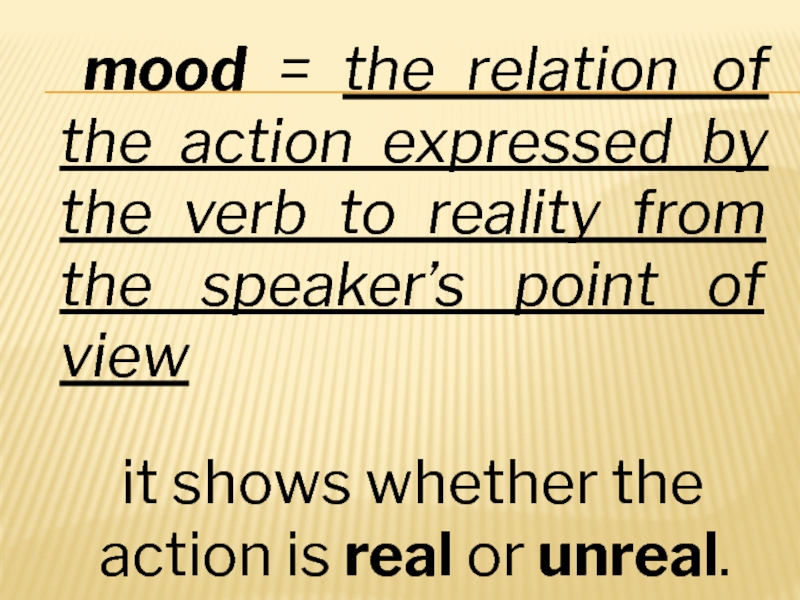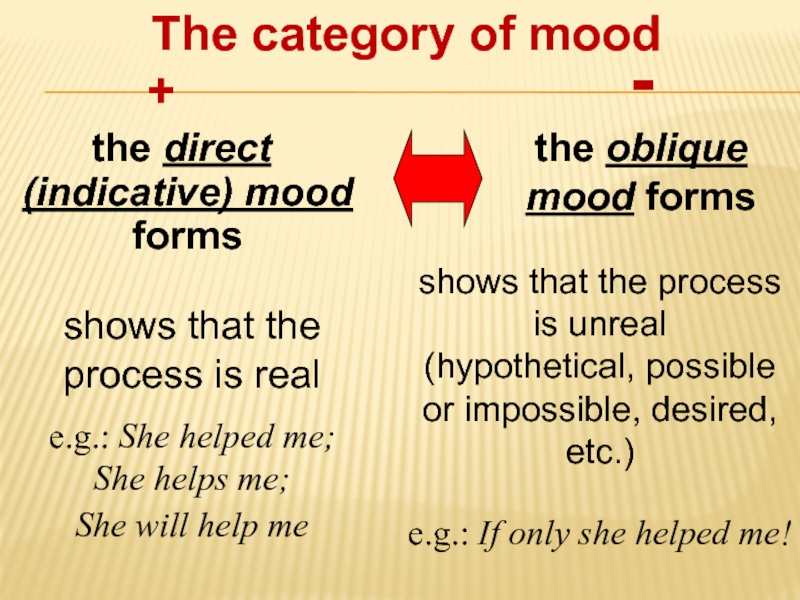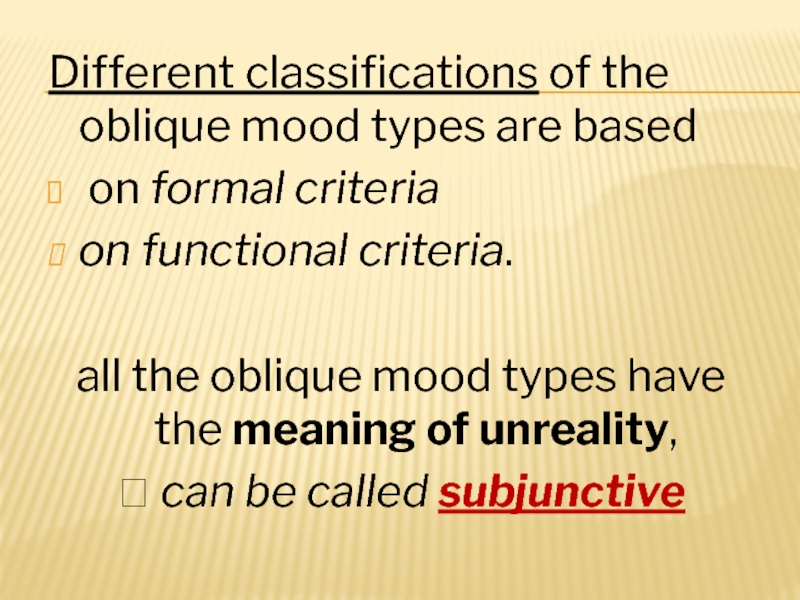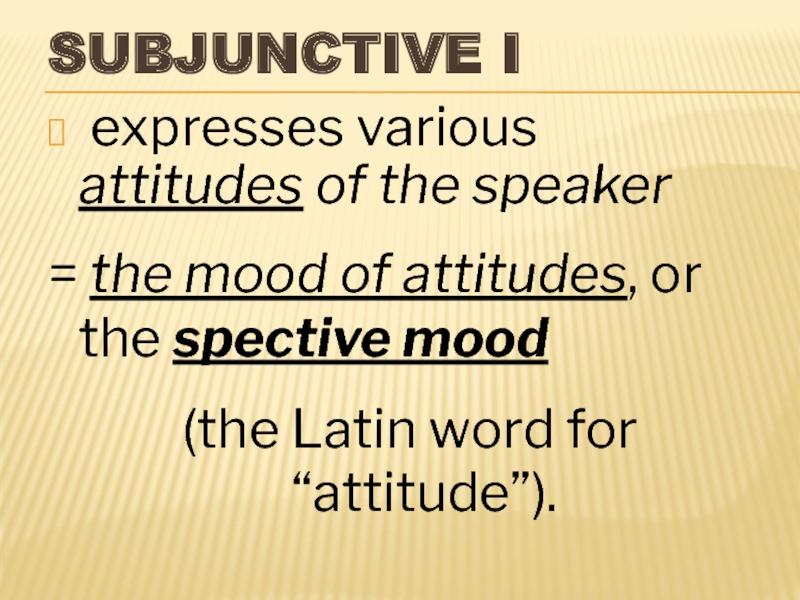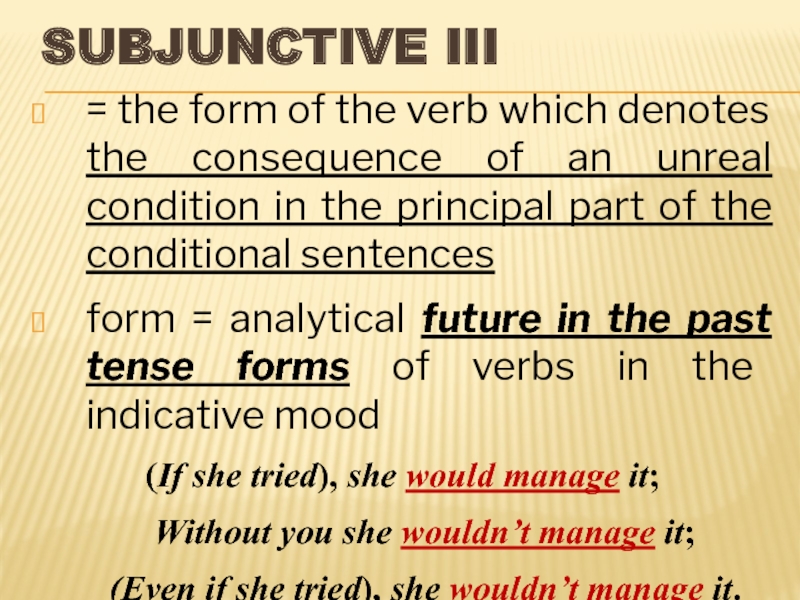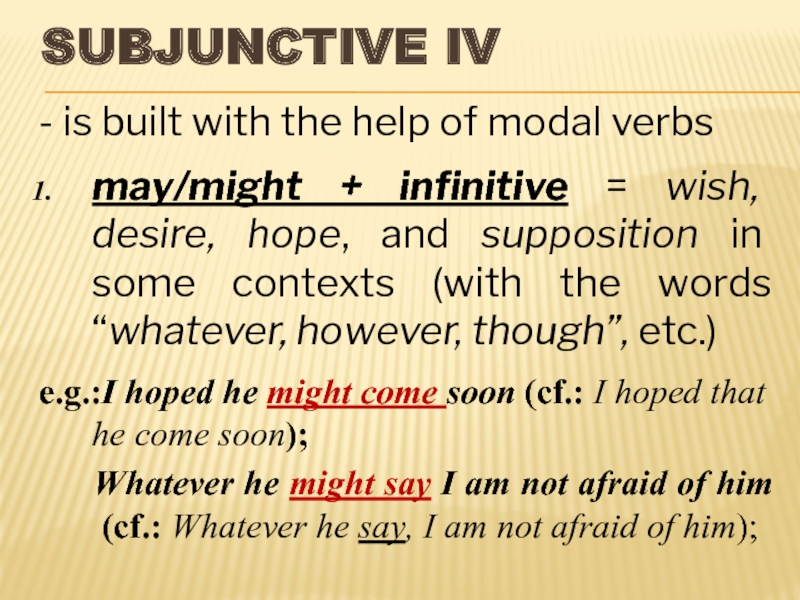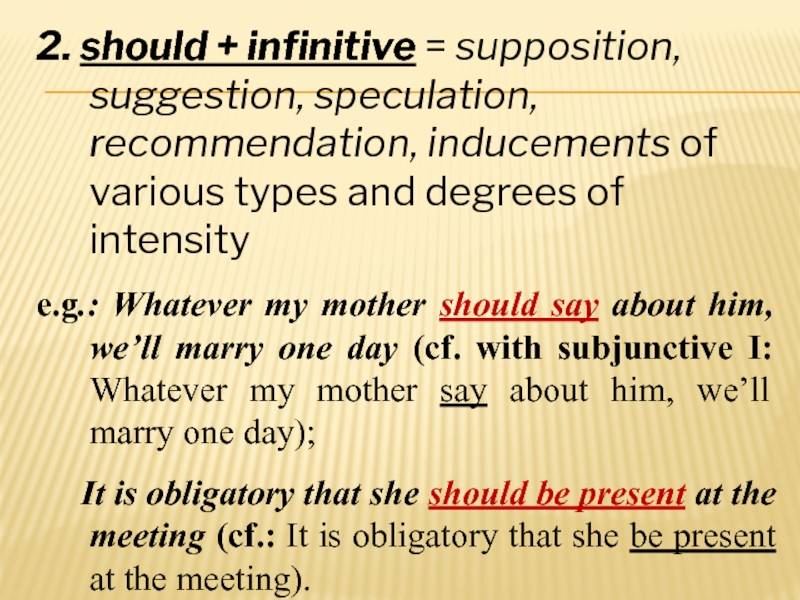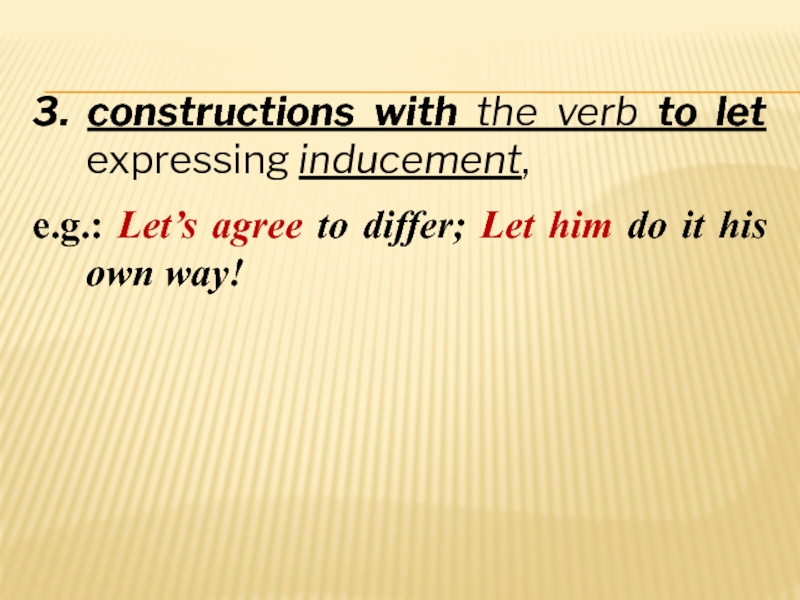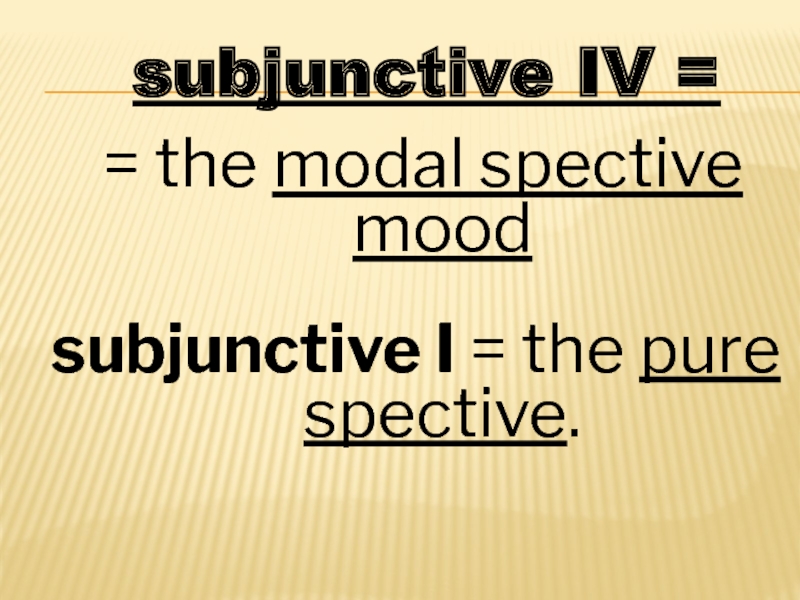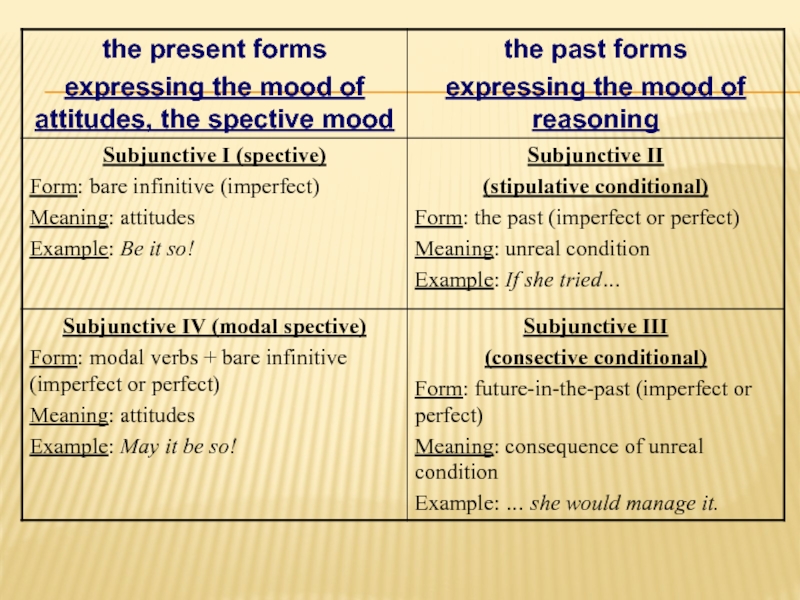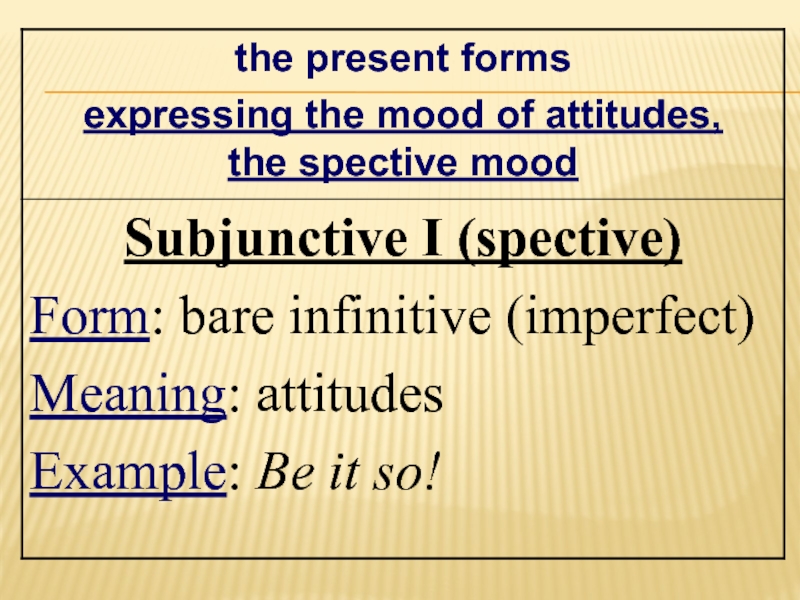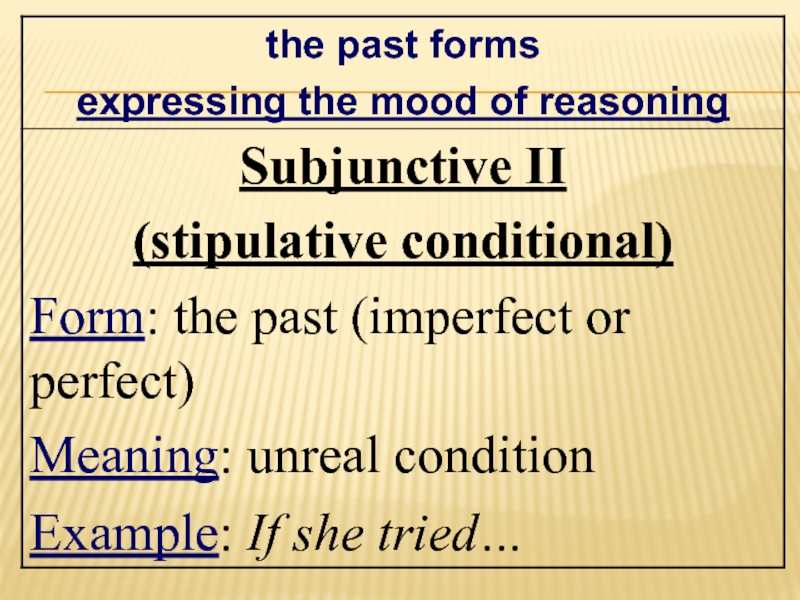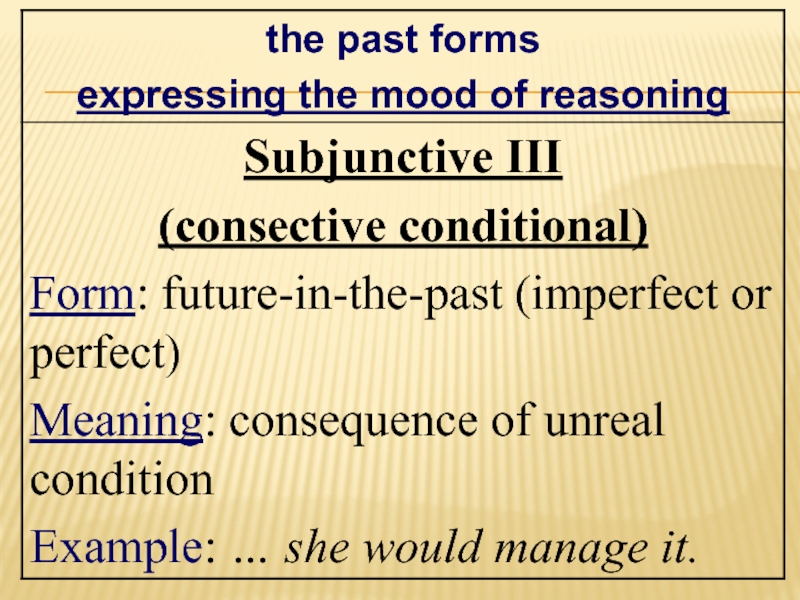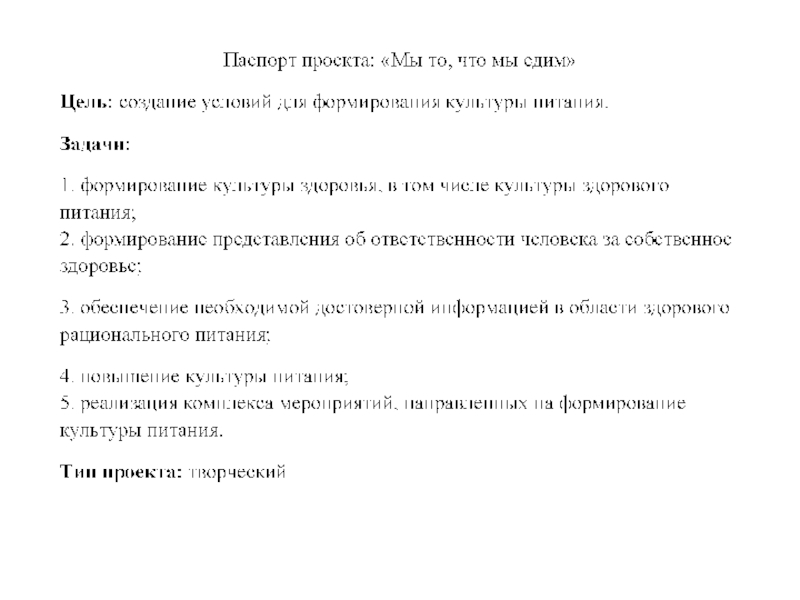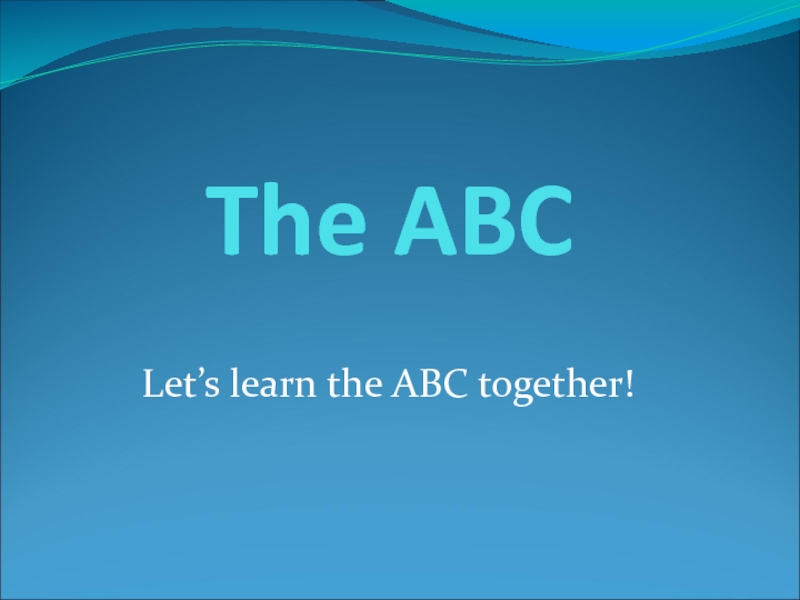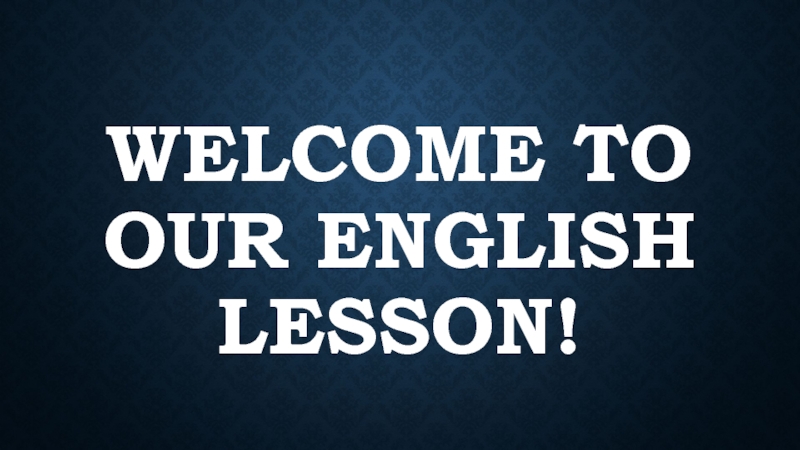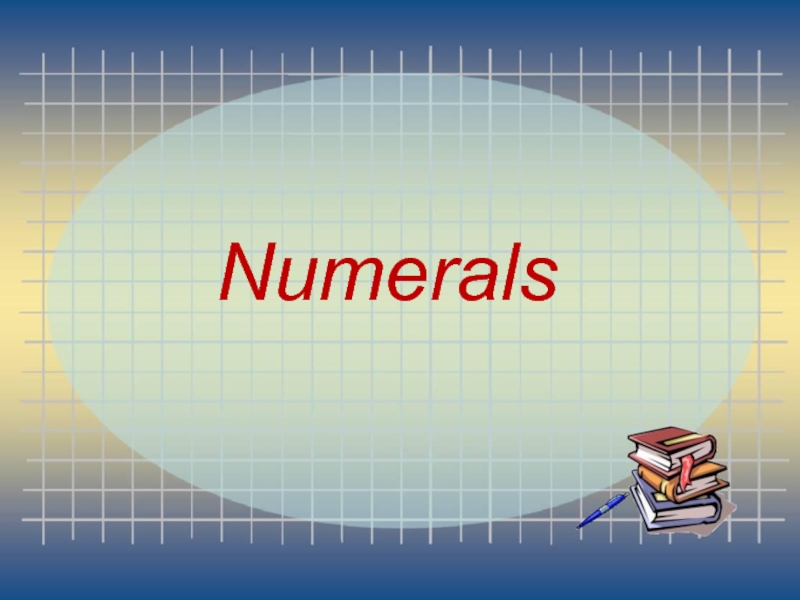- Главная
- Разное
- Дизайн
- Бизнес и предпринимательство
- Аналитика
- Образование
- Развлечения
- Красота и здоровье
- Финансы
- Государство
- Путешествия
- Спорт
- Недвижимость
- Армия
- Графика
- Культурология
- Еда и кулинария
- Лингвистика
- Английский язык
- Астрономия
- Алгебра
- Биология
- География
- Детские презентации
- Информатика
- История
- Литература
- Маркетинг
- Математика
- Медицина
- Менеджмент
- Музыка
- МХК
- Немецкий язык
- ОБЖ
- Обществознание
- Окружающий мир
- Педагогика
- Русский язык
- Технология
- Физика
- Философия
- Химия
- Шаблоны, картинки для презентаций
- Экология
- Экономика
- Юриспруденция
Verb category of mood презентация
Содержание
- 1. Verb category of mood
- 2. 8. Category of mood
- 3. the most controversial verbal category
- 4. cause: identical mood forms
- 5. mood = the relation of the
- 6. + the direct (indicative) mood
- 7. Different classifications of the oblique mood types
- 8. SUBJUNCTIVE I expresses various attitudes of
- 9. SUBJUNCTIVE I The form of subjunctive
- 10. form = the past tense forms of
- 11. = the form of the verb which
- 12. - is built with the help of
- 13. 2. should + infinitive = supposition, suggestion,
- 14. 3. constructions with the verb to let
- 15. subjunctive IV = =
Слайд 3the most controversial verbal category
no universally accepted classification of
16 (M. Deutschbein)
no mood at all (L. S. Barkhudarov).
Слайд 4 cause:
identical mood forms can express different meanings
Слайд 5 mood = the relation of the action expressed by the
it shows whether the action is real or unreal.
Слайд 6+
the direct (indicative) mood forms
-
the oblique mood forms
The category of mood
shows that the process is real
e.g.: She helped me;
She helps me;
She will help me
shows that the process is unreal
(hypothetical, possible or impossible, desired, etc.)
e.g.: If only she helped me!
Слайд 7Different classifications of the oblique mood types are based
on
on functional criteria.
all the oblique mood types have the meaning of unreality,
? can be called subjunctive
Слайд 8SUBJUNCTIVE I
expresses various attitudes of the speaker
= the mood of
(the Latin word for “attitude”).
Слайд 9SUBJUNCTIVE I
The form of subjunctive I = bare infinitive:
e.g.:
Whatever your mother say, I won’t give up;
I demand that the case be investigated thoroughly;
It is imperative there be no more delays in our plans.
Слайд 10form = the past tense forms of the verbs in the
is used mostly in the subordinate clauses of complex sentences with causal-conditional relations
generalized meaning = unreal condition:
cf.: She behaved as if she tried.
She behaved as she would behave if she tried.
It’s high time she tried to change the situation.
Subjunctive II =“conditional mood”
SUBJUNCTIVE II
Слайд 11= the form of the verb which denotes the consequence of
form = analytical future in the past tense forms of verbs in the indicative mood
(If she tried), she would manage it;
Without you she wouldn’t manage it;
(Even if she tried), she wouldn’t manage it.
SUBJUNCTIVE III
Слайд 12- is built with the help of modal verbs
may/might +
e.g.:I hoped he might come soon (cf.: I hoped that he come soon);
Whatever he might say I am not afraid of him (cf.: Whatever he say, I am not afraid of him);
SUBJUNCTIVE IV
Слайд 132. should + infinitive = supposition, suggestion, speculation, recommendation, inducements of
e.g.: Whatever my mother should say about him, we’ll marry one day (cf. with subjunctive I: Whatever my mother say about him, we’ll marry one day);
It is obligatory that she should be present at the meeting (cf.: It is obligatory that she be present at the meeting).
